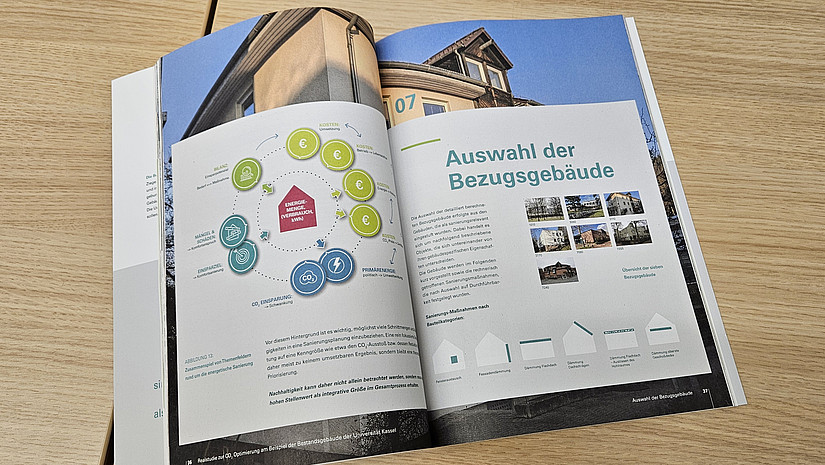Green Office
Sustainability management
My university is doing something
Alternative mobility concepts
The University of Kassel has increased the proportion of e-mobility in its vehicle fleet and intends to further expand it and the charging infrastructure for e-cars. The bicycle parking facilities for cyclists and e-bike riders are being improved. There is also a free state ticket for employees.CO2 emissions from business trips are offset.
Less energy and 100% green electricity

The University of Kassel is consistently engaged in identifying and utilizing energy-saving potential and is focusing on the expansion of renewable energies. To this end, several projects with extensive measures have been initiated. As part of the joint electricity supply contract with the state of Hesse, the university uses 100% green electricity, which is certified as coming almost entirely from hydropower.
Figures & Facts
Graphic from the real study onCO2 optimization using the example of the existing buildings at the University of Kassel. This study identified the savings potential through refurbishment measures. Future issues such as summer heat stress were also addressed.
Activities & Structure
Join in
Would you like to take part in a Sustain Group or work on the sustainable development of the campus in a project seminar?

Fields of action
Participation - Go:Green
Campus life - Green:Campus
University operations - Green:University
Energy - Green:Energy









